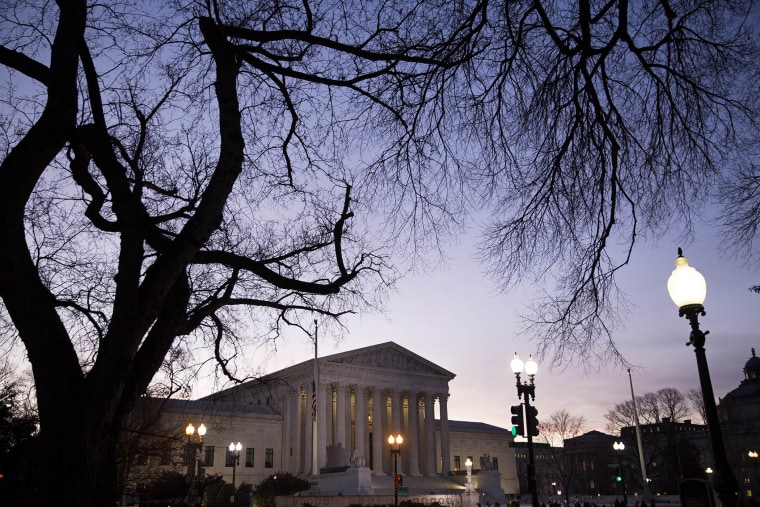The Republicans' unprecedented Supreme Court blockade may be embarrassing to GOP senators, but there's no reason to believe the party intends to change strategies. On the contrary, the Republican plan is to launch an obstructionist tactic with no parallel in the American tradition, accept the criticism, and wait for people to start talking about something else.
But in the meantime, Politico reports that the Senate GOP is willing to move forward on some judicial nominees, and fill some court vacancies, just not the one President Obama is most concerned with.
John Cornyn, the second-ranking Senate Republican and a former Texas Supreme Court judge, was attending Justice Antonin Scalia's funeral this month when he found himself chatting with White House counsel Neil Eggleston. The topic: their mutual interest in confirming judges to lifetime appointments to the federal bench. Even as Senate Republicans vow to block President Barack Obama's Supreme Court pick until after the election, GOP leaders are quietly maneuvering to approve lower-level judicial nominees in the Senate pipeline, including several from conservative states who were recommended by Republican lawmakers.
Oh, I see. There are federal court vacancies Republicans want filled, and there are nominees the GOP considers unobjectionable, so the Senate majority sees no reason to impose a total blockade on the judiciary -- just the most important court vacancy.
The Politico piece added that Republicans, naturally, don't see any hypocrisy: "Many of the nominees have been going through the confirmation process for months, starting long before [Antonin Scalia's] death."
There's some truth to that, but the key word in that sentence is "months" -- as in, there are many months remaining in 2016, and there's no reason the Senate can't spend a few of them considering a qualified high court nominee.
The article quoted Cornyn arguing, "I don't think the situation with regard to Justice Scalia's vacancy is going to have any impact on those other appointments. We'll be processing those."
And at a certain level, that sounds perfectly reasonable. There are vacancies in the judiciary, the White House has sent nominees for consideration, many of those nominees enjoy majority support, so the confirmation process, as outlined by the Constitution, will move forward. It's not the least bit controversial.
But it does make the blockade gambit for the Supreme Court look even worse.
There's no credible defense for the idea that election-year Senate votes on judges are fine, but only those judges Republicans like. It's ham-fisted partisanship, obviously, but there's no underlying principle at play that anyone can point to with a straight face.
Sen. Chris Murphy (D-Conn.) saying, "I can't keep track of the number of double, triple and quadruple standards that are being set by Republicans."
If GOP senators can come up with a defense for why there should be two standards instead of one, I'll be eager to see it.
